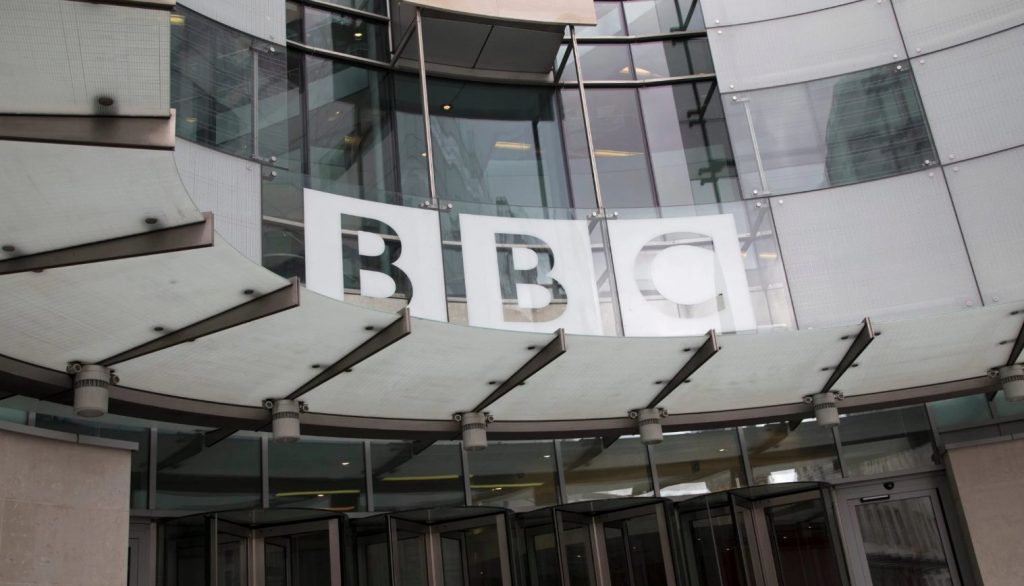UK Government launches review into how the BBC will be funded after 2027. Options on the table include the BBC operating more commercial services.
- Licence fee not seen as fit for purpose in changing media environment
- Concerns about BBC World Service and UK minority language services
- Expert panel assembled to provide independent advice
The Department for Culture, Media and Sport (DCMS) is leading a Government review into how the BBC should be funded once the current licence fee settlement ends in three years’ time.
The licence fee is increasingly not seen as being fit for purpose in the current media landscape, which has seen audiences switch to online platforms and consume news and entertainment in different ways.
Future BBC funding models could allow the BBC to provide more services on a fully commercial basis, which would see the BBC carrying adverts and/or operating subscription services. But there’s expected to be strong opposition from existing commercial broadcasters who fear a commercially-funded BBC could negatively affect their services. Meanwhile, a full subscription model would undermine the BBC’s public service remit.
Arguably, the BBC already does offer commercial services, both abroad and in the UK under the disguise of UKTV (i.e. Alibi, Dave, Drama, Eden, Gold, W, Yesterday). UKTV is fully owned by BBC Studios, the commercial arm of the BBC. But any changes would remove the wall that effectively divides BBC-branded channels and its non-BBC branded channels in the UK.
Meanwhile, the BBC World Service and minority language broadcasting in the UK (S4C, BBC Alba, BBC Radio Cymru and BBC Radio nan Gaidheal) could be disproportionally affected by the end of the licence fee, as these services would struggle to be sustainable if only funded through advertising and/or subscriptions.
What will the review explore?
The DCMS-led review will explore…
- the sustainability of the BBC’s current funding model
- the context of a rapidly-changing broadcasting and media market
- whether the BBC should provide more services to audiences on a commercial basis, and what those services should be
- the potential for the BBC to generate more commercial income
- the evidence around other funding models to support BBC services and output
- how the BBC could transition to any new funding model.
With these points in mind, the DCMS has invited nine experts with media experience to form an expert panel. They’ll provide independent advice to the review. The members of the panel are:
- Martin Ivens (former editor of The Sunday Times)
- Sir Peter Bazalgette (TV executive and producer)
- Siobhan Kenny MBE (former CEO of Radiocentre)
- Dame Frances Cairncross DBE (Former Management Editor of The Economist)
- David Elstein (former head of programmes at BSkyB, and ex-chief executive of Channel 5)
- Oli Hyatt (co-founder of BAFTA award-winning animation studio Blue Zoo)
- Helen Bower Easton CBE (former Civil Servant; Director of Communications at the Financial Conduct Authority
- Amber de Botton (former ITV News Home Editor and Downing Street Director of Communications)
- Lorna Tilbian (Media Analyst)
When we will find out more and what happens next?
The review aims to be complete by this autumn.
After that, whoever is in Government will be charged with starting the next BBC Charter Review. The recommendations of the review could then flow into final decisions over BBC funding beyond 31st December 2027.
If there is a change to funding, the Government will need to decide how the broadcaster can transition. Changes to BBC services could be phased in or introduced in a ‘big bang’ moment for broadcasting.
What’s the BBC doing?
The BBC appears to have accepted that it will need to be more commercial in nature in the future.
While cutting back on news, the BBC One schedule has seen the addition of a number of popular mass entertainment shows that wouldn’t look out of place on a commercially funded channel. Examples include The Traitors and Survivor. Meanwhile, the BBC iPlayer continues to move beyond just BBC shows. It recently added three NBC Universal shows to its content library, including US legal drama Suits, which was originally shown on UKTV’s Dave channel.
In a future nod to commercialisation, after announcing its news channel would become available as a streaming channel in the USA, BBC News this month introduced a new text-based filler. Notably, it’s very similar to breakfillers used by other streaming channels like NBC News Now. When the breakfiller goes on air, personalised and non-personalised adverts can be inserted into the stream. As each individual viewer may see adverts of a different duration, viewers can be sent back to the breakfiller without crashing into an ongoing report or trailer. It’s a sign of what could come to UK viewers in the future.
Through its involvement in the development of next generation TV platform Freely, the BBC will be in a better position to throw a paywall around some or all of its content. Freely will drive the UK’s switch to online TV. And the BBC’s online streams require users to have a BBC account to access them.
What happens to public service content?
However, there are concerns about what happens to its core public service remit. That includes doing things that broadcasters have shied away from due to commercial reasons. Additionally, the BBC has traditionally been tasked to provide services for older and vulnerable audiences, providing services that may not be as attractive to advertisers.
As a result, some have called for a hybrid solution. For example, former BBC producer John Muir this week suggested in The Times a reduced rate licence fee to cover core news, local and regional content and documentaries, with other content behind a paywall.
Marc Thornham
[Image: BBC blocks, New Broadcasting House, London]

